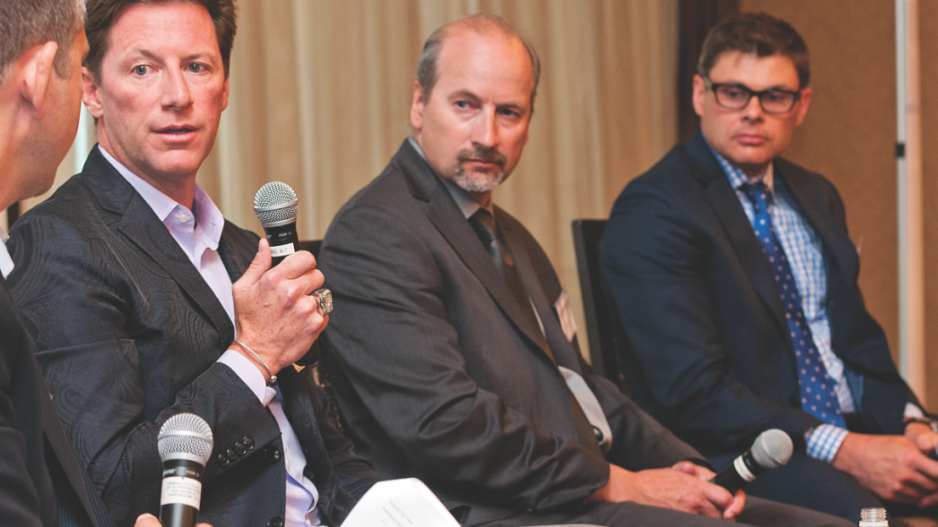When Coastal Contacts bought a Swedish subsidiary in the early 2000s, Roger Hardy recalls, the asking price sat at $18 million.
Speaking at BIV’s Business Excellence Series: Buying and Selling a Business on May 26, the former CEO of the publicly traded eyewear giant said the company used $6 million cash to cover part of the deal. Coastal’s own shares covered the remainder.
“Then when we sold [Coastal] last year, that $18 million was worth about $200 million,” Hardy told the crowd of about 100 people at the Terminal City Club in downtown Vancouver.
“[Stock] is a great currency as long as it’s growing, doing the right things.”
Many of the legal complexities that come with financing such a deal can be wiped away if owners take care of all the “low-hanging fruit” a high-growth business often neglects as it tries to keep up with the daily grind, according to fellow Business Excellence Series panellist Loren Mallett, a partner specializing in tech companies at Alexander Holburn Beaudin + Lang LLP.
“It really is just getting ready for the due diligence,” Mallett told the audience. “Get proper advisers in place, and if they’re doing their job … they’re going to go find those holes – the holes in the record book, the holes in the contract management system, the holes in the intellectual property registrations.”
Hardy’s time spent buying and selling businesses didn’t conclude with the sale of family-owned Coastal, as Hardy Capital Corp. went on to buy online retailer SHOEme.ca and Seattle’s OnlineShoes.com last July.
But the fact the Hardy family has been able to smoothly transition from one business to another is atypical.
Business Excellence Series panellist Ron Batty, a partner at MNP’s private enterprise services, told the crowd that only 10% of businesses have a formal transition plan, which can lead to tensions when parents are ready to retire.
“In a family setting, the challenge there is to get the message across to the family: fairness doesn’t necessarily mean equality in a succession arrangement where you’re bringing in the next generation,” he said.
“We’ve got situations where one particular child has grown the business tenfold. Putting an estate plan together for a family, you need to recognize that and have those difficult conversations sometimes with the family.”
And even if there aren’t issues among siblings, Mallett noted there are often significant gaps between the financial expectations of parents and those of their children.
“It’s [parents’] blood, sweat and tears that went into it,” he said. “So when it comes time to turn it over to the next generation, there can be a bit of a disconnect in the pricing. And that leads to some very interesting discussions about how you finance the deal and how the new generation basically takes out the old.”
For that reason, Batty said, it’s important for owners to identify the potential buyer – be it through a strategic acquisition or management buyout – as they come closer to exiting their business.
“We’re seeing more and more management buyouts because it works for both [parties],” he said. “Sometimes the owner will take a price cut because they want to see that business continue.”
But maximizing the value of a sale or acquisition is one of the reasons why Hardy always keeps channels open with potential partners at trade shows, business meetings or phone calls, he said.
The key for buyers, he said, is to have the exclusive right to do the transaction.
But on the other side of the table, he said, it’s important for sellers to have “healthy tension” by drumming up interest from multiple buyers.
“I would say, ‘One offer is no offer.’”




